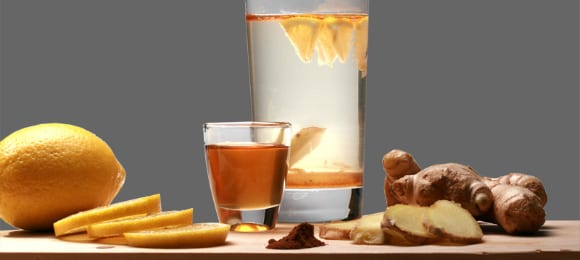If you’re looking for a dietary U-turn and a thorough mental and physical cleanse for a healthier outlook on the future, most lifestyle magazines will tell you a detox diet is just the change you need. So, you’re probably about to hit Google and find a radical detox regimen to follow through in the days to come, in hopes your lifestyle and body would undergo a sudden and exciting twist for the better.
Nevertheless, before you take up your new dietary plan, there are some things you need to know about the side-effects and risks such a cleanse entails, as well as its benefits. In essence, detox diets can indeed help you eliminate extra weight as well as toxins and fluids retained in your body, and can also reboot your immune system, boost stamina and improve your mood – but there are several downsides. According to an article published by the Harvard Medical School, “many studies have shown that fast and extremely low-calorie diets invariably lower the body’s basal metabolic rate as it struggles to conserve energy.” Here’s how this applies even to the most efficient among detox regimens as well.
- Several reliable sources including Live Science state that there is no scientific evidence to substantiate the claim that detox programs like the Master Cleanse are actually good for the body. Due to a lower intake of proteins and carbs through liquid diets and juice cleanses, your immune system may become more prone to bacterial development and virus infections, and that’s not exactly what you call a healthy prospect.
- Nutrition experts at Mayo Clinic have said that one of the possible reasons behind the refreshing effects some people experience after a detox diet may be the fact that such cleansing fasts exclude processed high-calorie foods rich in added sugar and solid fat. If you oust these from your normal eating habits without launching a drastic short-term diet, you may even achieve better results in the long run without compromising your overall health condition.
- Detox diet programs are structured around the premise of purging toxins from the body, but most fervent advocates of detoxicating regimens fail to mention that our lungs, kidney and liver are already doing this every day. According to Science-Based Medicine, our internal filters (known as the excretive system) can function seamlessly even without a rigorous cleanse routine, unless they are already affected by a serious disease – in which case you’d better consult a doctor and a professional nutritionist than the local detox kit promoter.
- Another problem with detox diets lies in the potential undesirable physical side-effects of such excessively restrictive regimens and sudden changes in your normal food intake. Once you launch a new dietary program that diverges considerably from your regular eating habits, you may experience stomach and bowel disturbances, flatulence, lack of energy, fatigue, intense hunger pangs, bad breath and even headaches and pains as your entire body begins to adjust to the lower intake of critical nutrients.
- According to three pilot studies carried out by a group of researchers, people who underwent detox regimens experienced both positive and negative effects of the diet, which is why a closer examination of the psychological implications and biochemical markers is necessary before any further statements about the efficiency and efficacy of cleanses could be made.
- The US National Library of Medicine states that even with some preliminary evidence on detoxicating effects of certain foods such as olestra, coriander and nori obtained through animal testing , there is still no solid proof that commercial detox diets can produce the same effects in humans. This claim is also backed by a study published by the British Dietetic Association.
Detox diets may be a quick solution for extra weight and waistline inches, but there is still no proof to support their alleged health benefits. Before you jump in, think carefully: even with their all-natural ingredients, increased hydration and improved toxin filtering capacities, juice cleanses and liquid foods are definitely not an adequate substitute for a healthy dietary pattern – nor a recommendable remedy for it either. Remember: staying fit and preserving the balance of both your weight, mood and energy is a project for a lifetime, and no quick fix can ever make up for the habit of excess.
Mathews McGarry is a graduate of the Faculty of Health Sciences in Sydney. I’m passionate about fitness and healthy food choices. Most of my days are spent in the gym, working as a personal trainer. I’m also a part-time blogger who loves to share tips about nutrition and healthy eating.








